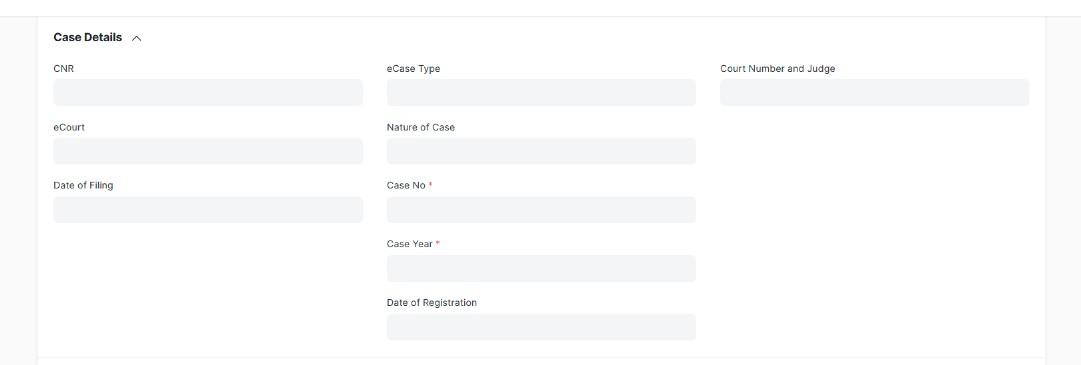Case Management: Comprehensive Case Details
In CaseCentral, the Comprehensive Case Details feature allows law firms to capture and manage specific information essential for effective case management.
Here’s how it handles key aspects
- Case Creation
Easily create new cases with all relevant details, including:
* **Petitioner**: The party who initiates the case.
* **Respondent**: The party against whom the case is filed.
* **Representing**: The lawyer or law firm representing the petitioner or respondent.
* **Opposition Lawyer**: The lawyer representing the opposing party.
* **Company (Law Associates)**: The law firm handling the case.
* **Scrutiny Status**: The current review status of the case.
* **Matter**: The specific issue or subject of the case.
* **Case Status**: The current state or progress of the case.

2. Custom Fields
Add custom fields to tailor the case creation process to specific requirements. 3. Party Information
Include detailed information for both the petitioner and respondent, such as:
* **Rank of Party**: The rank or position of the party in the case.
* **Party Name**: The name of the petitioner or respondent.
* **Address**: The address of the party.
* **Advocate**: The advocate representing the party.

4. Case Details
Include essential case-specific information, such as:
* **CNR**: Case Reference Number.
* **e-Court**: Electronic court reference.
* **Date of Filing**: The date when the case was filed.
* **Case No**: The unique case number.
* **Case Year**: The year the case was filed.
* **Case Type**: The type or category of the case.
* **Court Number**: The number of the court where the case is being heard.
* **Judge**: The judge presiding over the case.
* **Date of Registration**: The date when the case was registered.

5. Case History Details
Include historical information related to the case, such as:
* **Business on Date**: The business conducted on a specific date.
* **Purpose of Hearing**: The reason for the hearing.
* **Business Details**: Details of the business conducted during the hearing.
* **Hearing Date**: The date of the hearing.

Implementation in CaseCentral
- Usage: Users can monitor and manage the progress of each case, update case details, assign tasks, and track deadlines within the CaseCentral platform.
- Integration: These fields are integrated into search, reporting, and analysis functionalities to streamline case management.
This structured approach ensures that CaseCentral effectively manages and categorizes legal cases, enhancing organizational efficiency and clarity in case management. Users have the flexibility to customize and expand these classifications as their firm's practice evolves and new legal challenges arise.



